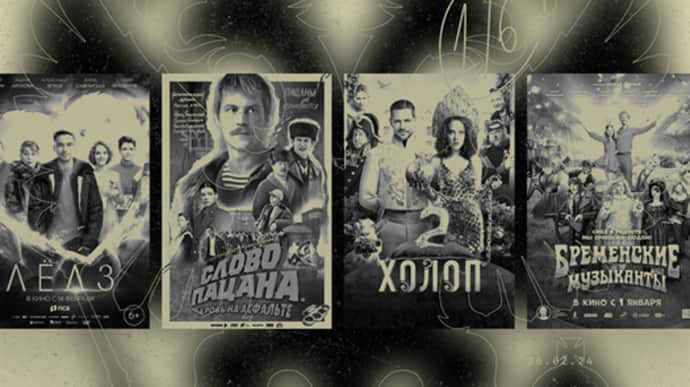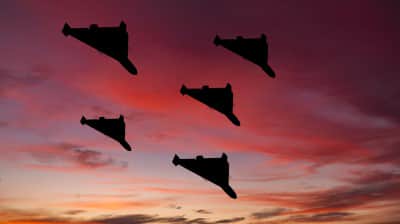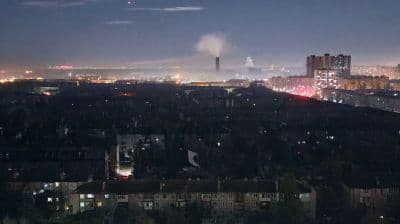Kremlin plans to influence Russian voters through popular media content

The Russian publication Meduza reports that popular Russian TV series such as Slovo Patsana ("The Boy's Word"), Kholop ("Serf"), and others had been produced as covert propaganda in the lead-up to the re-election of Russian president Vladimir Putin.
Source: Meduza, the Russian Latvia-based media outlet, citing internal documents of the administration of the Russian president, to which the publication gained access.
Details: Reportedly, in the spring of 2023, a meeting took place in the Kremlin dedicated to the upcoming re-election of Vladimir Putin, exactly one year before the event. During the meeting, a multipage presentation titled "Creative content for elections" was showcased to administration staff, federal officials, and political technologists.
It was presented by Sergey Novikov, the head of the public projects department in Putin's government, whose department currently makes key decisions regarding Russia's state cultural policy.
Novikov collaborated with Alexey Goreslavsky, the head of the Internet Research Institute (IRI), in preparing the presentation. During the war, the IRI bankrolled the production of films, series, and other cultural products, many of which are of a propagandistic nature, to a substantial extent.
The text indicates that in the leadup to the 2024 elections, the presidential administration and the IRI prepared several dozen "creative projects."
Novikov's subordinates took on the task of promoting them through bloggers and the media, while Goreslavsky's department handled digital and conventional advertising, as well as overall marketing. The work also involved the Dialog autonomous NGO, another propaganda organisation with branches across Russia, which, since 24 February 2022, has been spreading disinformation about Ukraine. The presentation notes that Dialog members were entrusted with "content distribution across Russia."
The document lists the titles of movies and TV series that are planned to be "distributed" and "promoted" in connection with the Russian presidential elections. Among them are projects "themed to the special military operation" (i.e., related to the war against Ukraine) and very popular mainstream films and series attempting to advance a state agenda.
The document mentions the comedy series Kholop 2, the drama Led 3 about figure skating, the musical Bremen Town Musicians, the fantasy film At the Pike's Behest, and the Slovo Patsana series.
The presentation's authors believe these and other projects are intended to ensure the "protection of national interests" and demonstrate "the preservation of cultural identity, traditions, and sovereignty."
In particular, the most popular Russian TV series in recent years, Slovo Patsana, depicting criminal gangs in Kazan during the final years of the Soviet era, aims to "increase the population's awareness of positive changes in people's lives in Russia, historical and contemporary achievements of compatriots, heroes of our days, and good role models."
The Kremlin also thinks that Slovo Patsana portrays "qualitative changes in life in Russia as a sustainable trend" (presumably suggesting that Russians in the 2020s live better than Soviet citizens in the 1980s – a note by Meduza). It is reported that Slovo Patsana was filmed, in part, with funding from the IRI.
The Prorok ("Prophet") musical film about the life of Alexander Pushkin is featured in the presentation with the focus statement "Heroes of our time, reasons to be proud, and great Russian historical figures."
The document also includes more explicit examples. For instance, the NDR series, depicting the work of a Soviet intelligence officer in East Germany, is described in the presentation as "[bolstering positive perceptions] of state security officer[s]."
Other projects directly depict the war in Ukraine and the lives of the "residents of new territories." For example, Ottsy Donbassa ("The Fathers of Donbas"), referred to as a "multi-series documentary film about people and events on the southern borders of Russia in the territories of the Luhansk, Donetsk, Zaporizhzhia, Kherson, and Rostov oblasts of the Russian Federation."
Meduza said that the Presidential Foundation for Cultural Initiatives spent nearly 20 million rubles on this project.
Another project about the war, the 20/22 series, tells the story of the love between Danil, who went to Donbas as a "volunteer on a humanitarian mission," and Alice, a "staunch opponent of the special operation."
Another series, Nuremberg, aims to change the situation where "in the annals of mainstream history, shaped in part by Hollywood, Anglo-American achievements in shaping the world order always come to the forefront, while the role of the USSR is practically forgotten."
Meduza reached out to the creators of these films and series for comment, but they reportedly refused to provide statements. Meanwhile, sources close to the production crews and directors claimed that they were allegedly "finding out for the first time" that these productions were influenced by the government and could be part of Putin's pre-election campaign.
Support UP or become our patron!







